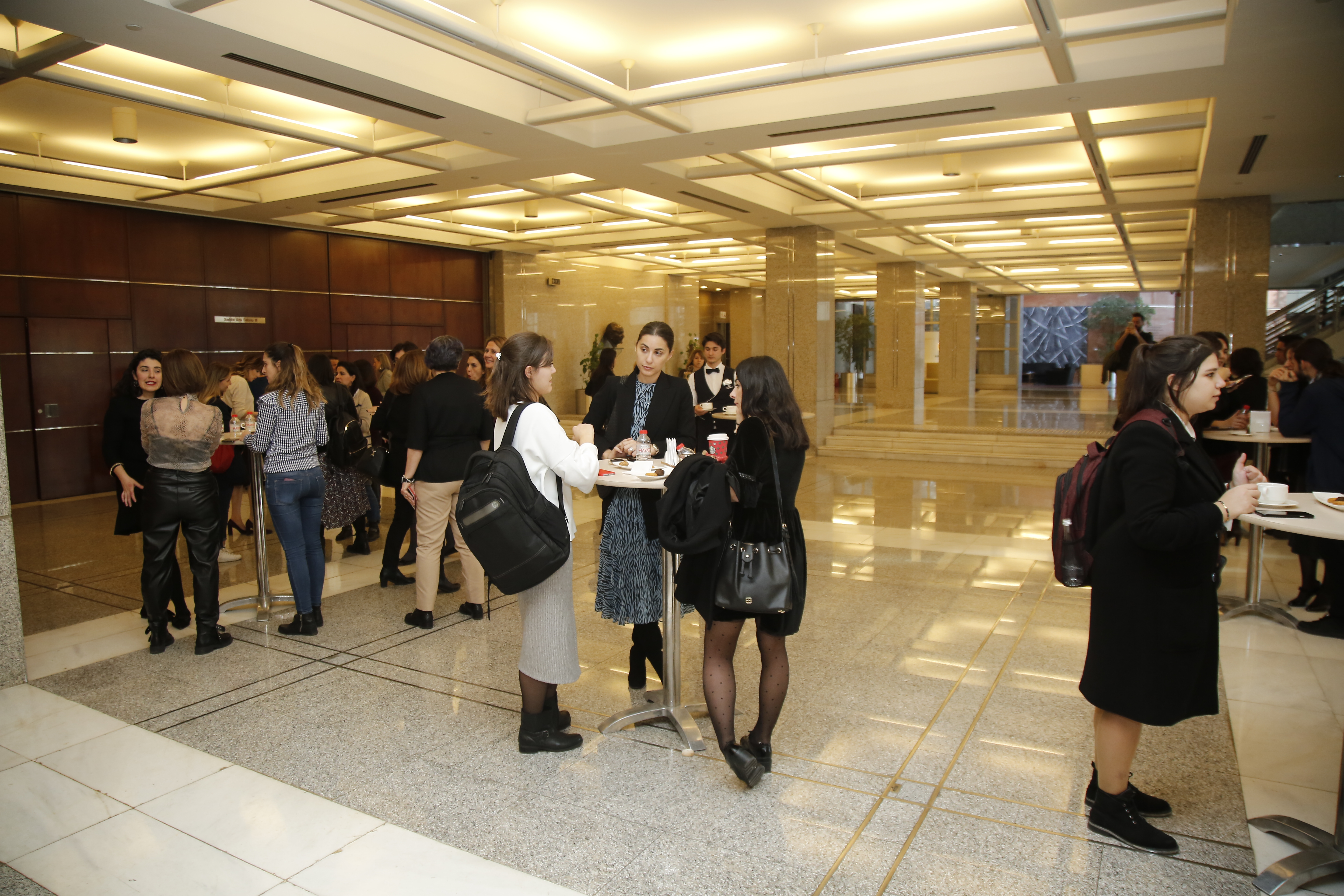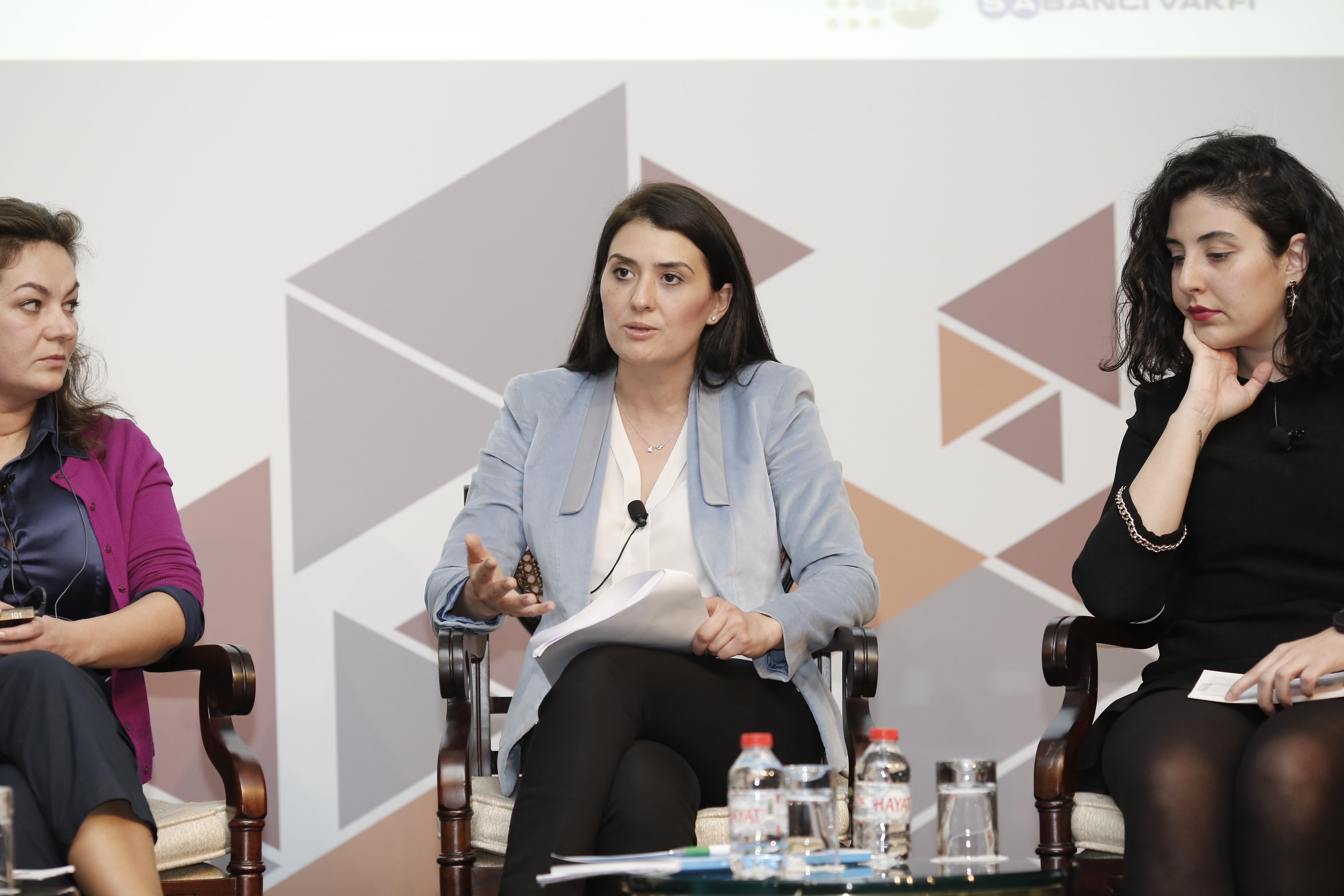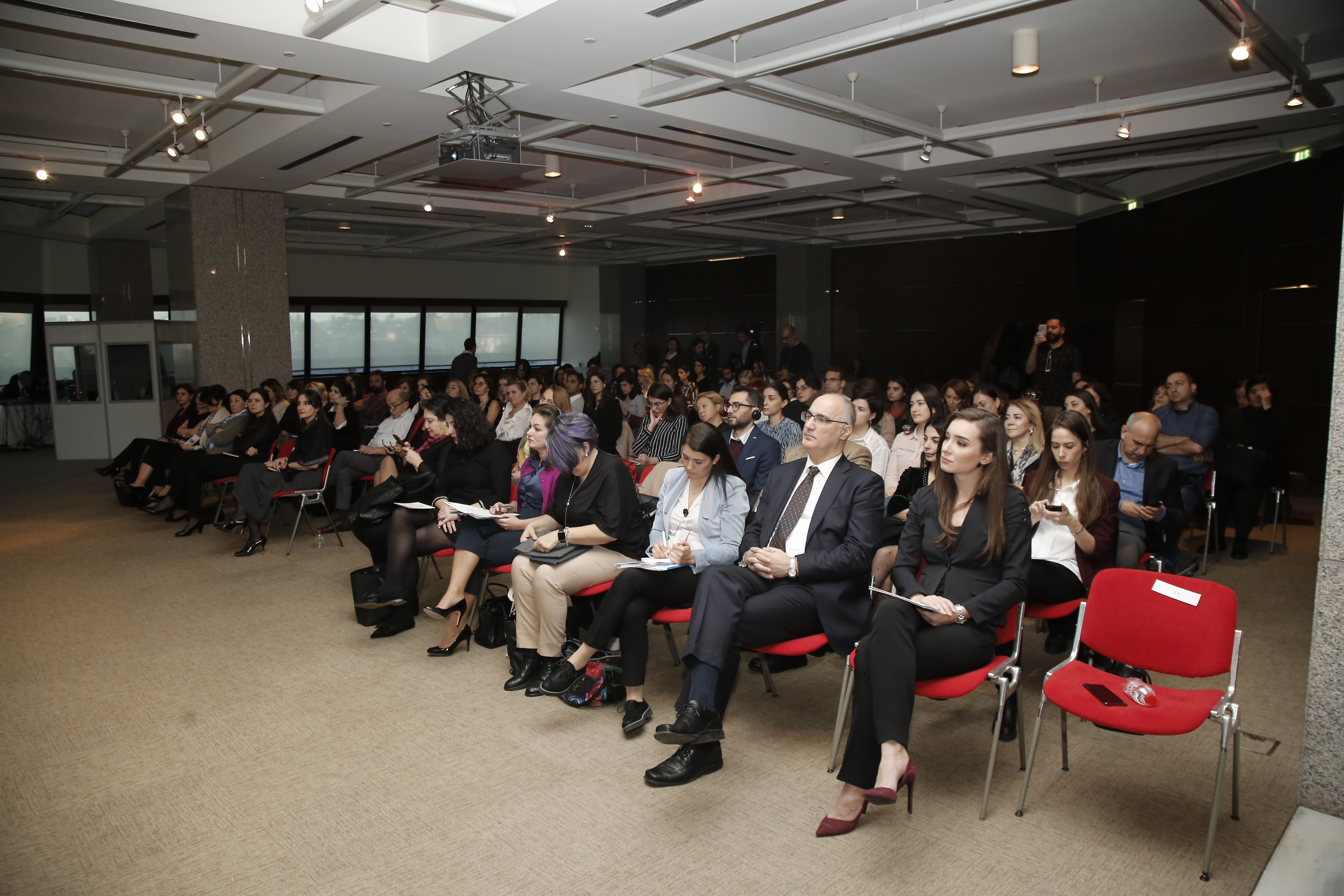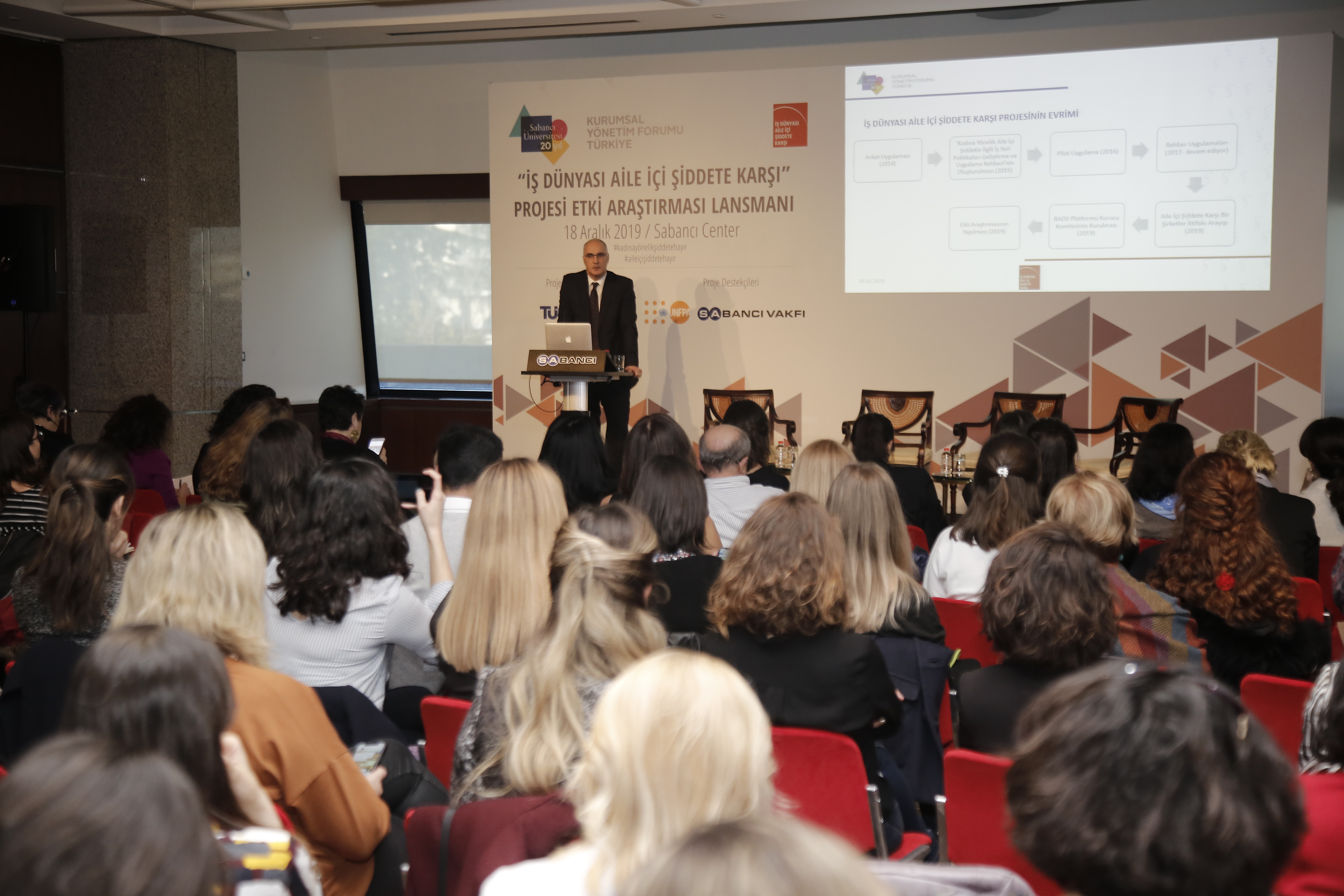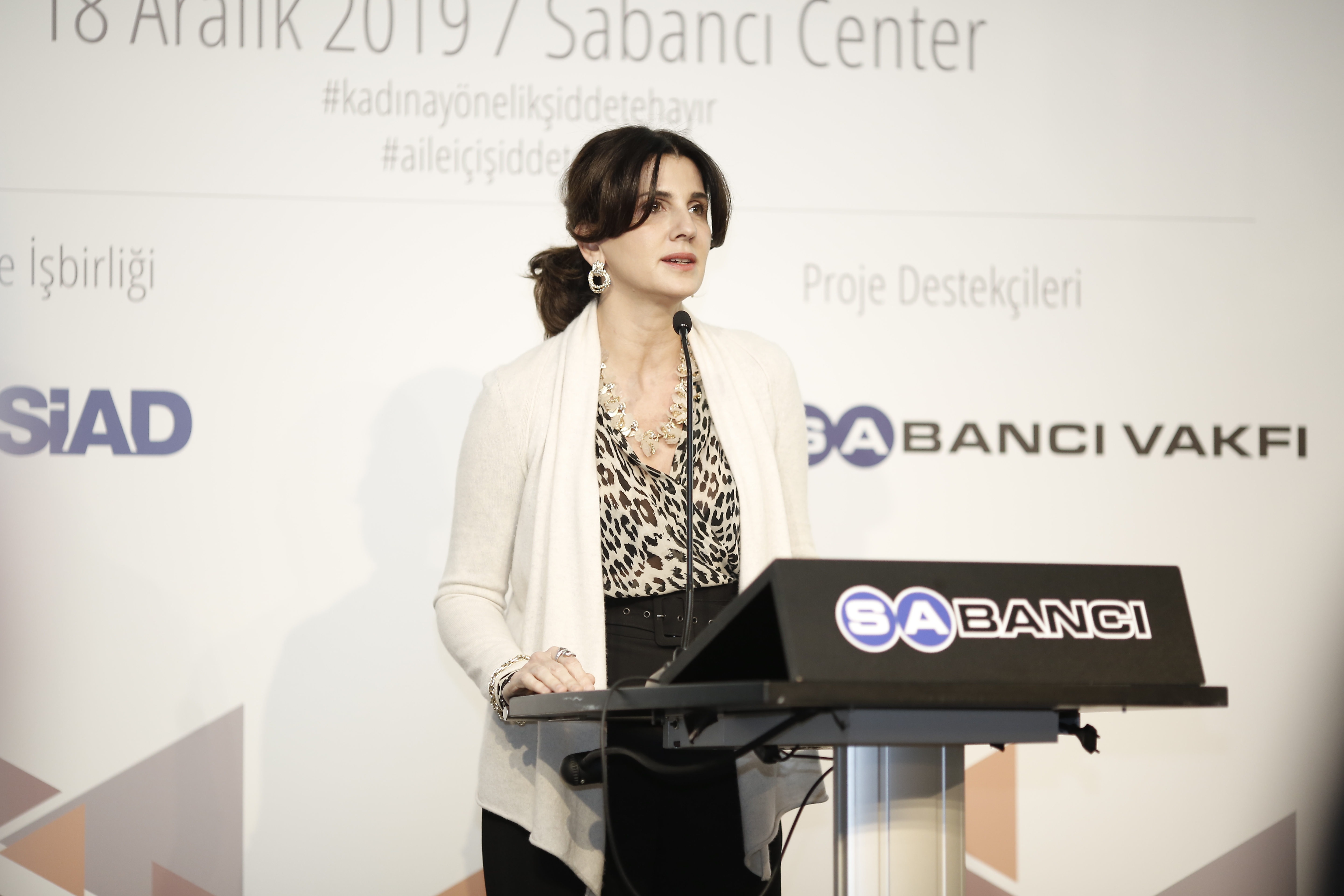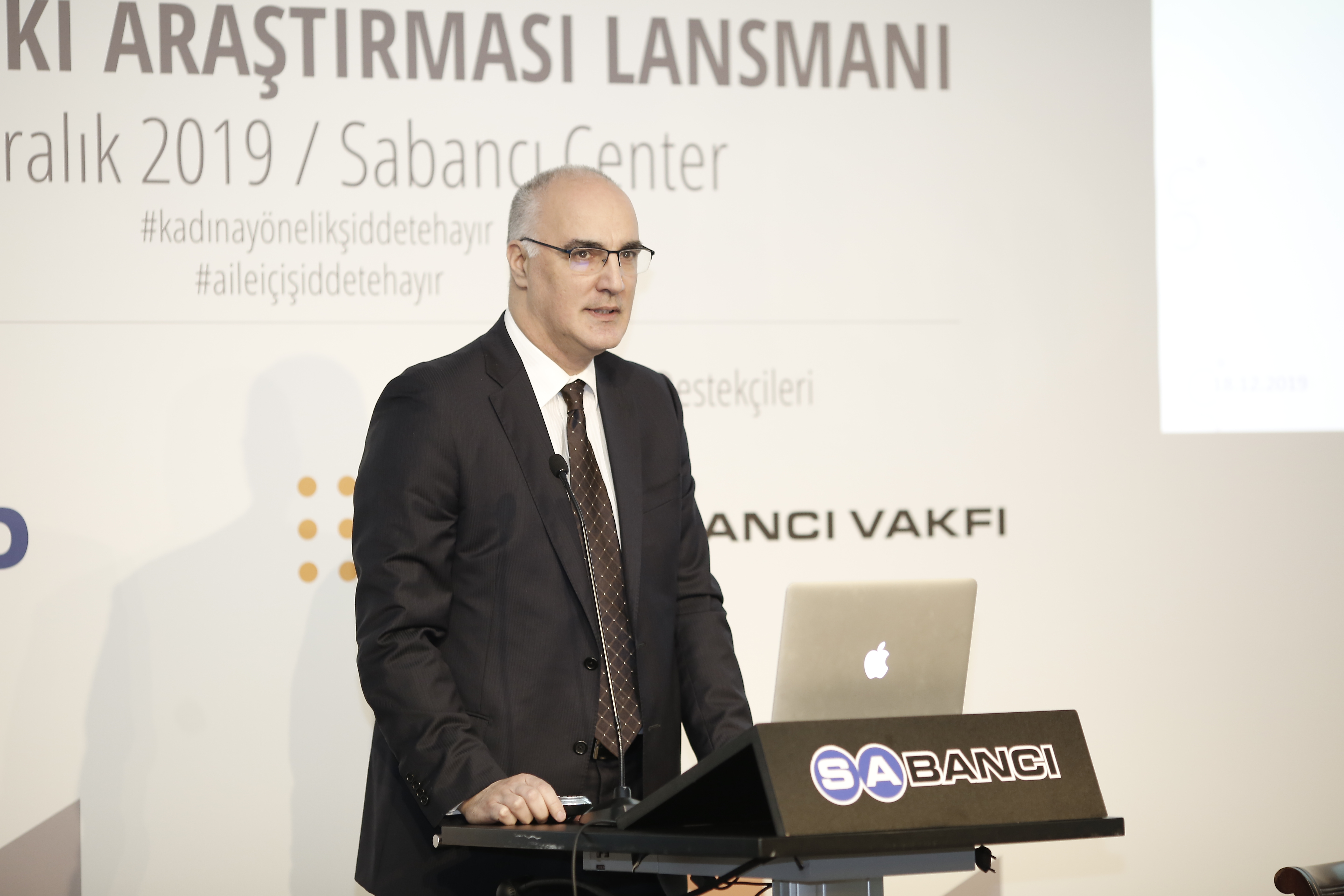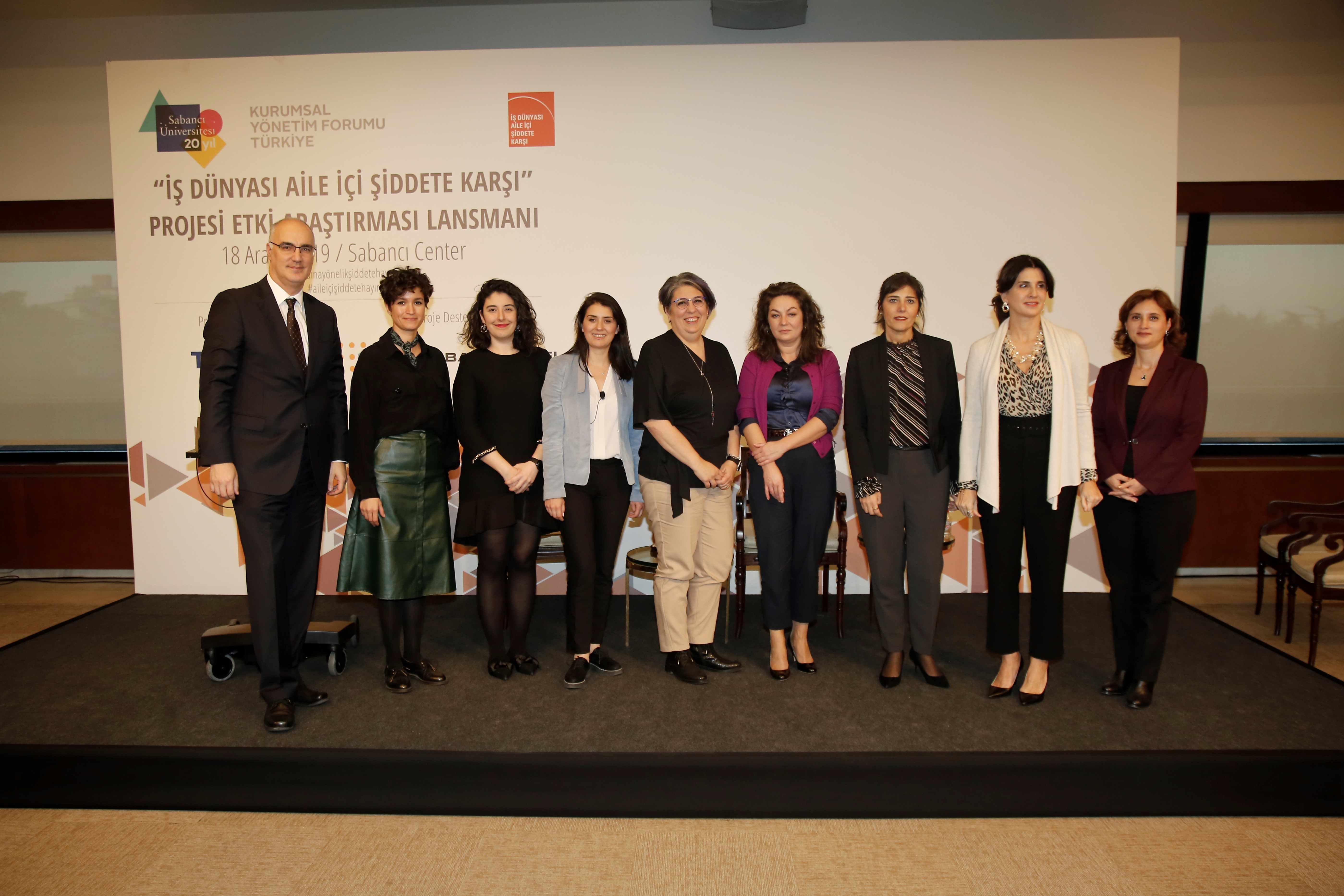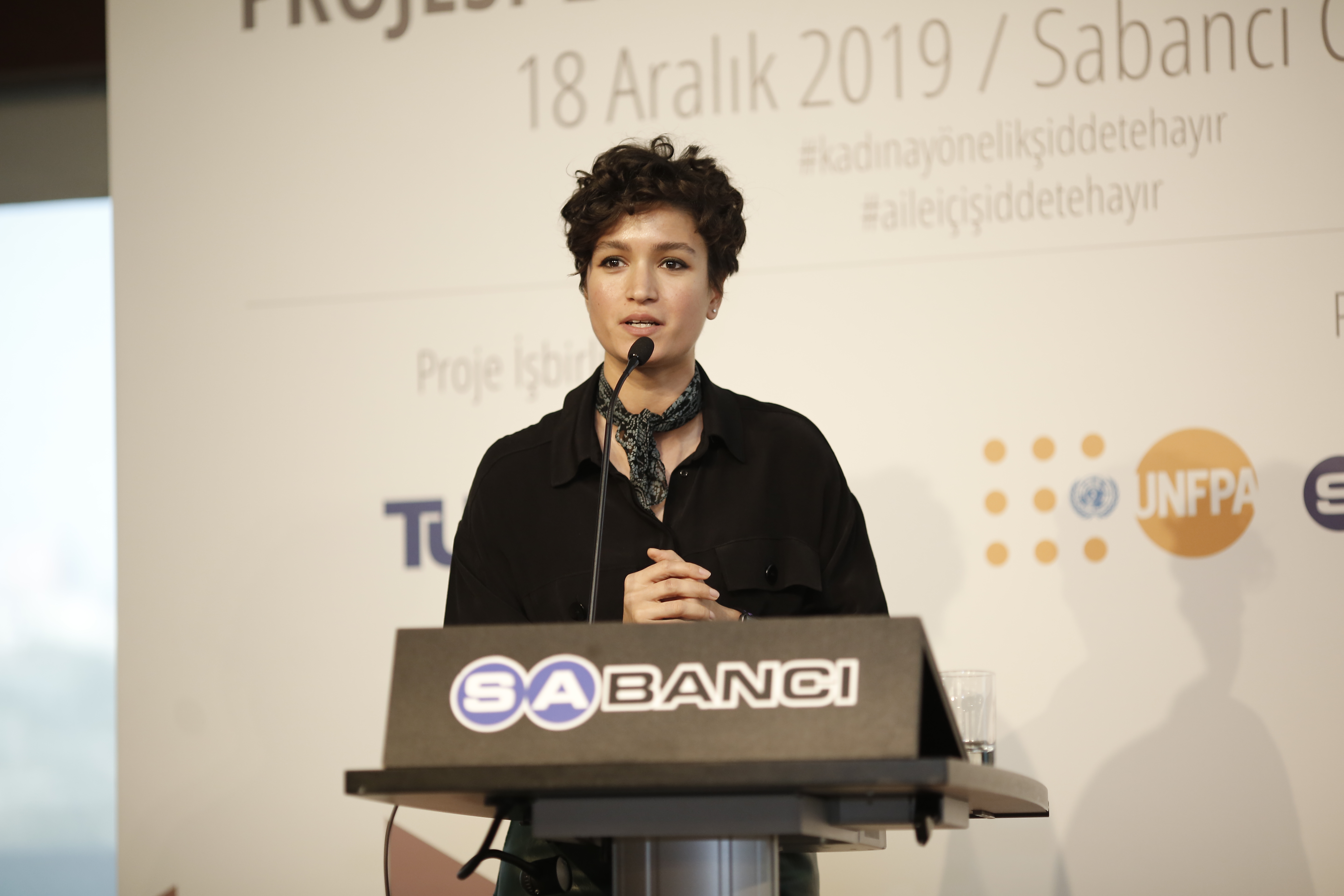
“Business Against Domestic Violence Project Impact Research Results” within the scope of Business Against Domestic Violence Project which is launched by the cooperation of the Corporate Governance Forum of Turkey and TÜSİAD and by the support of UNFPA and Sabanci Foundation to enable company employees to take action against the violence which they exposed to in the close relationship, was shared with the public in the meeting held on Wednesday, December 18, 2019, in Sabanci Center.
Sabancı Foundation General Manager Nevgül Bilsel Safkan made the opening speech of the meeting. Nevgül Bilsel Safkan said that “As Sabancı Foundation, we have been working for 45 years in a society where all individuals enjoy equal rights. We support the projects of non-governmental organizations and cooperate in order to ensure that women have access to their rights in all areas such as participation in education, employment and social life. In order to produce lasting solutions to a multidimensional problem such as violence against women, it is important to act in collaboration with academia, civil society, international organizations and the business world. In this sense, we believe that the Business Against Domestic Violence project is an example. The project not only enables the cooperation of different actors, but also leads the business world to become a stakeholder who plays an active role in combating domestic violence and offers concrete solutions.”
Sabancı University Faculty of Management Mahmut Bayazıt presented the Results of the Business Against Domestic Violence Project Impact Research.
Following the presentation of the report results, a panel titled International Approach to Combating Domestic Violence against Women was moderated by Meltem Ağduk, UNFPA Coordinator of Gender Equality Programs was started.
In the panel, the Corporate Social Responsibility (CSR) Ukraine Project Manager Svitlana Pavlysh, the International Labor Organization (ILO) Turkey Employment Manager Tuba Zodiac Senel and Garanti BBVA Employer Brand Director Tuğçe Kayaalp Yesilyurt were speaker.
In her speech, Meltem Ağduk said, “One of the obstacles to the effective participation of women in the labor force is domestic violence resulting from the unequal position of women in society and the unequal sharing of economic and political power between the sexes.Women often remain out of work or leave the labor force due to their socially defined roles and, together with discriminatory and gender-insensitive policies that do not support women. UNFPA will continue to work with local partners on domestic violence and discriminatory policies for human rights and sustainability by empowering companies by supporting women to enter and stay in business.”.
The closing speech of the meeting was made by Oya Ünlü Kızıl, President of TÜSİAD Gender Equality Working Group. Oya Ünlü Kızıl said “We should not forget the private sector's leading role in achieving the Sustainable Development Goals, and we need to mobilize our society-transforming power further. As TÜSİAD, we see ensuring gender equality as an indispensable element of democratic development and sustainable development in our country. Combating violence is a very important part of this. In order to protect the rights of women who are exposed to violence and to establish an understanding that does not excuse the perpetrator in any way, not only the business world, but all segments of the society must act.”.
The results of the research can be summarized as follows;
- The most important reason of the violence was the effect of “economic difficulties 78 in the study in 2014, in 2019, this rate declined to 75 percent.
- There was a dramatic decrease in the proportion of those who said that a woman who was subjected to domestic violence should solve this problem by herself ” in 2014, this rate declined to 2 percent.
- In the eyes of male employees, there is a significant increase in the importance of “seeing men as the owner of women among the causes of violence. While this rate was 65 in 2014, it rose to 74 percent in 2019.
- It is seen that the ratio of those who support the “inadequate or imperfect woman“ has decreased from 22 percent to 17 percent.
- It is noteworthy that in the eyes of female employees, an increase in the opinion that “men see violence as normal rose from 68 percent to 78 percent.
- There is also a significant increase in the proportion of those who mark the option “The woman who has been subjected to violence can end her relationship if she really wants to ”. In 2014, 27 percent of respondents marked this option, while in 2019, this percentage rose to 36 percent.
- The ratio of people who say “Women exposed to violence should receive support from their colleagues at work or employees of the company's HR department ” is increased to 12 percent while it was 8 in 2014.


